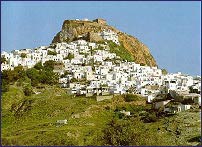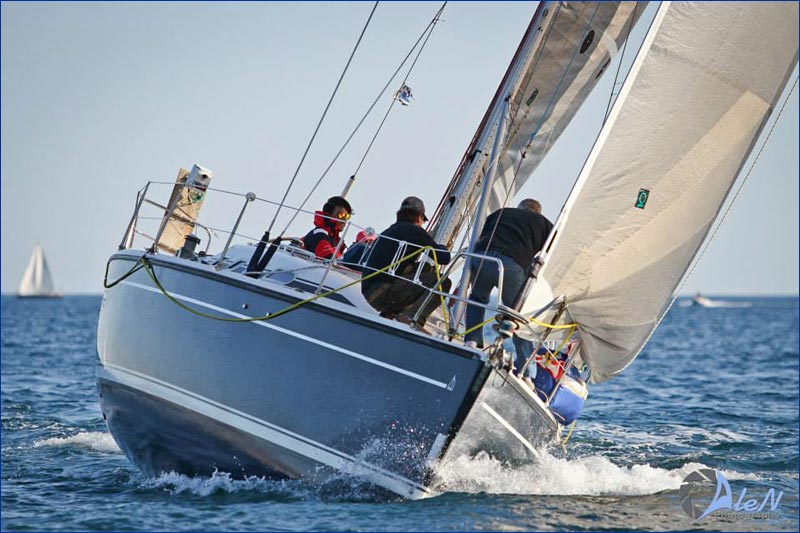Skyros
Destinations - Sporades » Skyros Skyros
belongs to the Sporades group, but it is further away east from
the rest and has developed independently. Its morphology is quite
interesting, as the island is almost divided into two parts by a
narrow isthmus in the middle. The northern part is cultivated,whereas
the southern is rocky and almost uninhabited.
Skyros
belongs to the Sporades group, but it is further away east from
the rest and has developed independently. Its morphology is quite
interesting, as the island is almost divided into two parts by a
narrow isthmus in the middle. The northern part is cultivated,whereas
the southern is rocky and almost uninhabited.
The island gives the impression that
it belongs to the Cyclades group rather than the Sporades, due to
the plain, cubic architecture in the capital town of Skyros. The
house interiors are furnished and decorated with elaborately curved
furniture and ornaments made by Skyriot artisans, and you are likely
to get an invitation from the proud and extremely hospitable owners
to admire a traditional house.
The town of Skyros with the traditional
houses and the Venetian castle is absolutely worth visiting. You
will be able to stroll through the labyrinth-like streets, and watch
the old men in their traditional costumes riding tame ponies, descendants
of the wild ponies of a unique breed that used to roam freely, but
are now almost extinct. Other things to see on Skyros are the impressive
archaeological museum and the Traditional Skyrian House Museum,
but the not-to-be-missed place is the Faltaits Museum with one of
the best folk art collections in Greece (admission is free, although
the museum is private). Poet Rupert Brooke's grave is also on the
island, near Tris Boukes bay in the south. It's not difficult to
find but a bit of trekking is needed to reach it.

